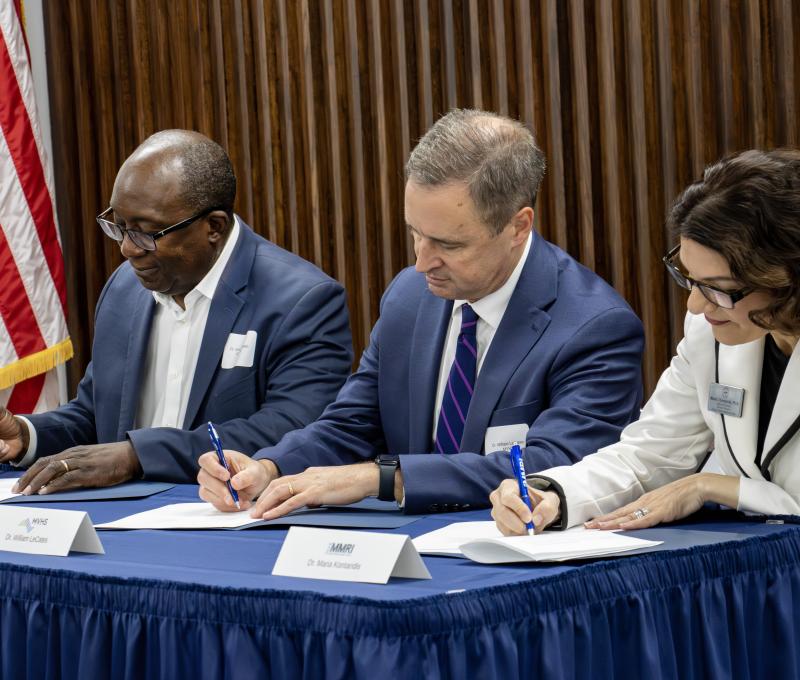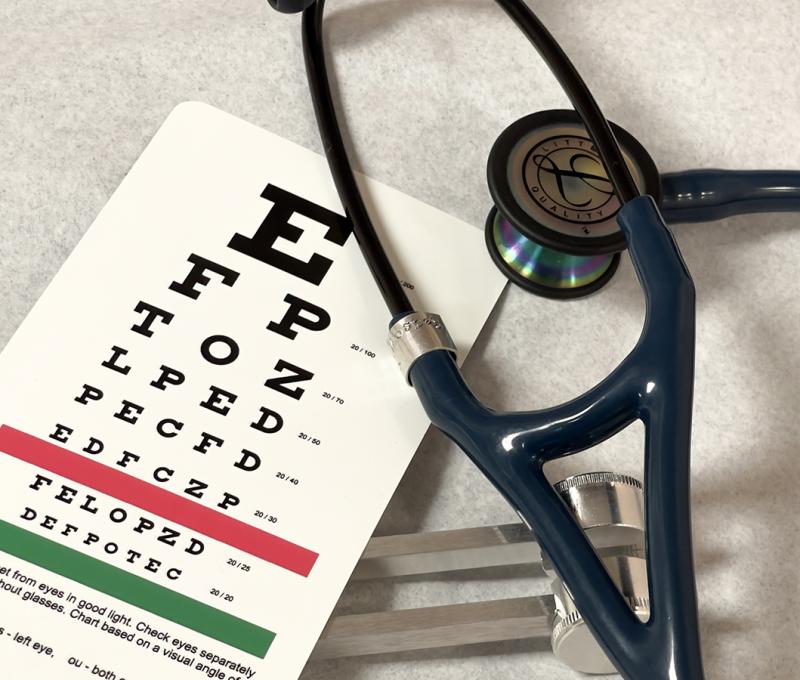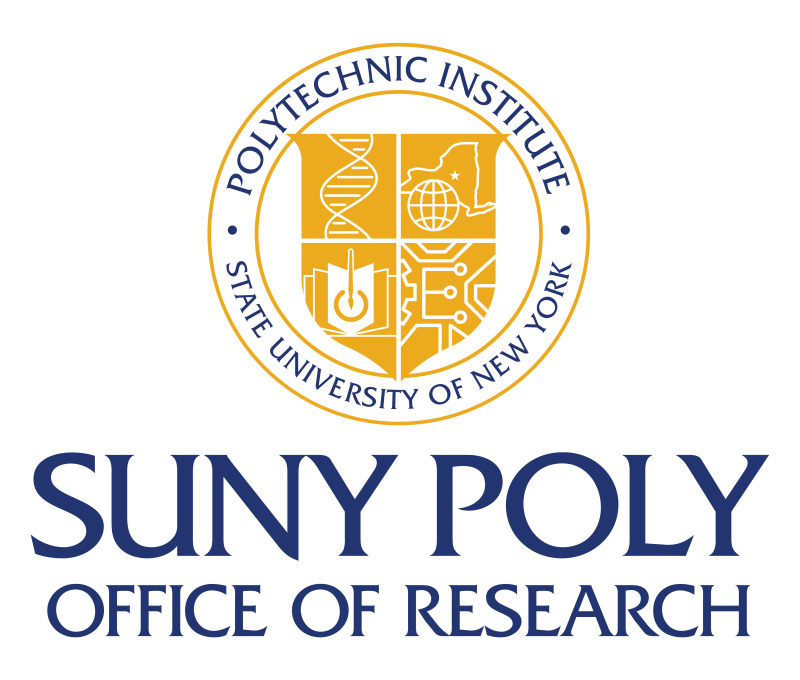News Release: SUNY Poly’s CATN2 Matching Investment Program Leverages $100K Empire State Development/NYSTAR Funding to Enable $260K in Matching Commitments from Industry and Other Partners for COVID-19 Focused Research Projects

For Release: Immediate – November 11, 2020
Contact: Steve Ference, Director of University Communications | (518) 429-7742 | sference@sunypoly.edu
Newest Round of MIP Funding Supports New York State’s Response to COVID-19 Pandemic
ALBANY, NY – SUNY Polytechnic Institute (SUNY Poly) announced that faculty-led research projects focused on the State’s response to the global Covid-19 pandemic have earned a total of $360,000 in funding from three companies with operations in New York State, including one start-up launched by a SUNY Poly faculty member. Part of the fourth round of the Matching Investment Program (MIP) by the New York State Center for Advanced Technology in Nanomaterials and Nanoelectronics (CATN2), this funding seeks to enable pioneering faculty research in areas that are both advancing academic knowledge and supporting New York’s response to the global Covid-19 pandemic, in addition to strengthening industry collaborations.
“This funding is driving research in critical areas that can help lead to greater understanding about the ways in which the COVID-19 pandemic can be mitigated, and we look forward to these efforts facilitating educational opportunities for SUNY Poly students,” said SUNY Poly Interim Vice President of Research and Graduate Studies Dr. Shadi Shahedipour-Sandvik. “These public-private research collaborations are underpinned by SUNY Poly’s globally recognized resources, synergistic partnerships, and innovation-based expertise which can further bolster New York State’s response to COVID-19.”
The CATN2 MIP Covid-19 response-focused funding also supports expansion of SUNY Poly’s R&D and commercialization capabilities in collaboration with New York State-based companies. Awards from the CATN2 MIP under this round totaled $100,000, with industry and other partners providing $260,000 in additional resource commitments for a total project investment of $360,000. The MIP funding represents a portion of a $921,200 grant from Empire State Development’s Division of Science, Technology, and Innovation (NYSTAR) to support SUNY Poly’s CATN2’s operations.
NYSTAR Executive Director Matt Watson said, “New York State’s research strengths are being harnessed to respond to the pandemic through innovative academic-industry partnerships. This CATN2 MIP funding helps to leverage the expertise and entrepreneurship of SUNY Poly faculty in developing cutting-edge solutions for COVID-19 treatment, while giving students a unique opportunity to collaborate in those discoveries.”
“This latest round of MIP funding is especially significant as it holds promise for SUNY Poly faculty, staff, and partners to not only seek scientific solutions to help address the COVID-19 pandemic, but it also allows students to gain first-hand experience in this most timely area of research. It is further proof that New York State is the place for partnerships with the power to make a difference,” said Michael Fancher, Director of the New York State CATN2.
The CATN2 MIP awards, including primary investigators, total amount of the award with industry match, and summary of the research to be undertaken as part of the 2019–2020 grants, include:
Project Title: Inhibiting SARS-CoV-2 replication in hearts using functionalized nanoparticles
PI: Dr. Benoit Boivin
Budget: $85,000
Summary: Given that many Covid-19 patients develop pneumonia, it was thought that the lung cells were the main cell type target by the virus, but over the course of the pandemic it has been discovered that heart cells are damaged as well. This project, in collaboration with the Masonic Medical Research Institute and Cold Spring Harbor Laboratory, will address how to protect the hearts of Covid-19 patients.
Impact: The proposed research program has high potential to contribute to the innovation agenda of New York State and the U.S. by: (1) validating therapeutic agents demonstrated to be safe for humans in clinical trials; (2) developing a novel therapeutic strategy to treat COVID-19 patients with coexisting cardiovascular conditions; and (3) training the next generation of highly-qualified personnel (students, post-doctoral fellows, technicians, and professionals) so that the knowledge gained will eventually migrate to private sector activities, particularly the biopharmaceutical industry.
Project Title: Dual-mode COVID-19 infection / antibody detection with a polymeric, plasmon-enhanced biosensing platform
PI: Dr. Nathaniel Cady
Budget: $125,000
Summary: In this CATN2 MIP project, Prof. Cady’s group will expand work on polymeric materials, in support of projects with our industrial partners Ciencia, Inc. and sxRNA Technologies, Inc. The project will transition nanoscale plasmonic grating fabrication techniques from silicon-based processing to rapid manufacturing in polymeric materials. Polymeric plasmonic grating chips will be used to demonstrate dual-mode detection of COVID-19 antibodies and the virus itself. This will provide a completely unique approach to COVID-19 diagnostic testing.
Impact: The first economic impact for this effort is transitioning a nanoscale fabrication and molding approach to large-scale/high-volume manufacturing of polymeric substrates. This will not only enhance SUNY Poly’s (and the CATN2’s) relationship with industry partners, but it will also demonstrate a pathway from initial proof of concept manufacturing with silicon wafer/semiconductor processing techniques (where high precision is required and smaller volume production is acceptable), to low-cost, high-volume polymer-based manufacturing. The second economic impact for this effort will be the development of a dual-use COVID-19 diagnostic assay with sxRNA Technologies and Ciencia, Inc. If successful, this dual-use assay can be commercialized by these industry partners as a tool to address the Covid-19 pandemic.
Project Title: Therapeutic control of senescence and COVID-19
PI: Dr. J. Andres Melendez
Budget: $75,000
Summary: COVID-19 shows a considerably higher mortality rate in individuals with underlying health conditions commonly observed in aging populations. In recent years cellular senescence has been shown to play a causal role in age-related susceptibility to disease including viral infections. Micronutrient status also plays a vital role in pathogen immune surveillance, and nutritional deficiencies are a primary cause of viral susceptibility in the elderly. Dr. Melendez’s work has revealed a strong connection between nutritional selenium deficiency and premature senescence activation which would render individuals highly susceptible to COVID-19. This project will bring to light key mechanistic facets for how aging and micronutrient status give rise to viral susceptibility and provide a new model for testing frontline therapies for the treatment of COVID-19. This project is relevant to industrial partner sxRNA Technologies. Inc. because it will address a critical need by applying their sxRNA platform with the expertise of the Melendez/Begley lab to develop an sxRNA senescence abatement prototype therapeutic.
Impact: In the short-term CATN2 MIP funding will support a graduate student who will work closely with the sxRNA Technologies staff as well as the Melendez/Begley group to implement the technology. Long term funding will allow for further hiring and expand the capacities of sxRNA Technologies. This research team will also envision making aging models available to many who are interested in testing senescence targeting-therapeutics.
Project Title: Development of rapid cell selection technology for production of Covid‐19 therapeutics
PI: Dr. Susan Sharfstein
Budget: $75,000
Summary: This project will further develop a novel, rapid, cell line selection approach (PTSelect™) for identification and selection of mammalian cells producing recombinant therapeutic proteins. With this technology, Dr. Sharfstein has already isolated cell pools expressing recombinant proteins in 10 days compared with 20‐30 days for traditional methods. However, in order for this technology to be commercially viable, the research team will need to show that it is not just faster, but better. To achieve that goal, collaborating with sxRNA Technologies, Inc. they will develop improved regulatory RNA constructs to increase expression of the recombinant proteins and evaluate the expression of the regulatory RNA and the gene coding for the therapeutic protein. Therapeutic proteins represent an important approach to treating Covid‐19 along with vaccines and small molecule drugs. Rapid production of these proteins is critical to advancing our treatments for Covid‐19, and cell line development is one of the rate‐limiting steps in process development, a limitation that this technology will address.
Impact: Advancing this technology will also enable other advanced bioresearch activities at SUNY Poly, including production of biosimilars (generic versions of therapeutic proteins) and studies of novel therapeutic proteins, e.g., bispecific antibodies.
For more information about the program and the previous rounds of funding, please visit:
- https://sunypoly.edu/news/news-release-suny-poly-professors-awarded-125-million-nys-center-advanced-technology.html; and
- https://sunypoly.edu/news/news-release-matching-investment-program-mip-leverages-140k-empire-state-developmentnystar.html.
####################
About SUNY Polytechnic Institute (SUNY Poly)
SUNY Poly is New York’s globally recognized, high-tech educational ecosystem. SUNY Poly offers undergraduate and graduate degrees in the emerging disciplines of nanoscience and nanoengineering, as well as cutting-edge nanobioscience programs at its Albany campus, and undergraduate and graduate degrees in technology, including engineering, cybersecurity, computer science, and the engineering technologies; professional studies, including business, communication, and nursing; and arts and sciences, including natural sciences, mathematics, humanities, and social sciences at its Utica campus; thriving athletic, recreational, and cultural programs, events, and activities complement the campus experience. As the world’s most advanced, university-driven research enterprise, SUNY Poly boasts billions of dollars in high-tech investments and hundreds of corporate partners since its inception. For information visit www.sunypoly.edu.
About SUNY Poly’s CATN2
The mission of the New York State Center for Advanced Technology in Nanomaterials and Nanoelectronics (CATN2) at SUNY Polytechnic Institute (SUNY Poly) and its College of Nanoscale Science and Engineering (CNSE) is to drive systematic progression in technology transitions, market adoption, skills attainment, and entrepreneurial growth by aligning SUNY Poly’s Applied Research Capabilities (SPARC) with industry cooperation partners through each phase in the research, development, & deployment (RD&D) commercialization continuum.
About NYSTAR
Empire State Development's Division of Science, Technology and Innovation (NYSTAR) advances technology innovation and commercialization in New York State. Its 70+ funded centers provide direct assistance to companies from start-up through maturity, leveraging the state’s unparalleled investment in world-class technology assets and expertise.








